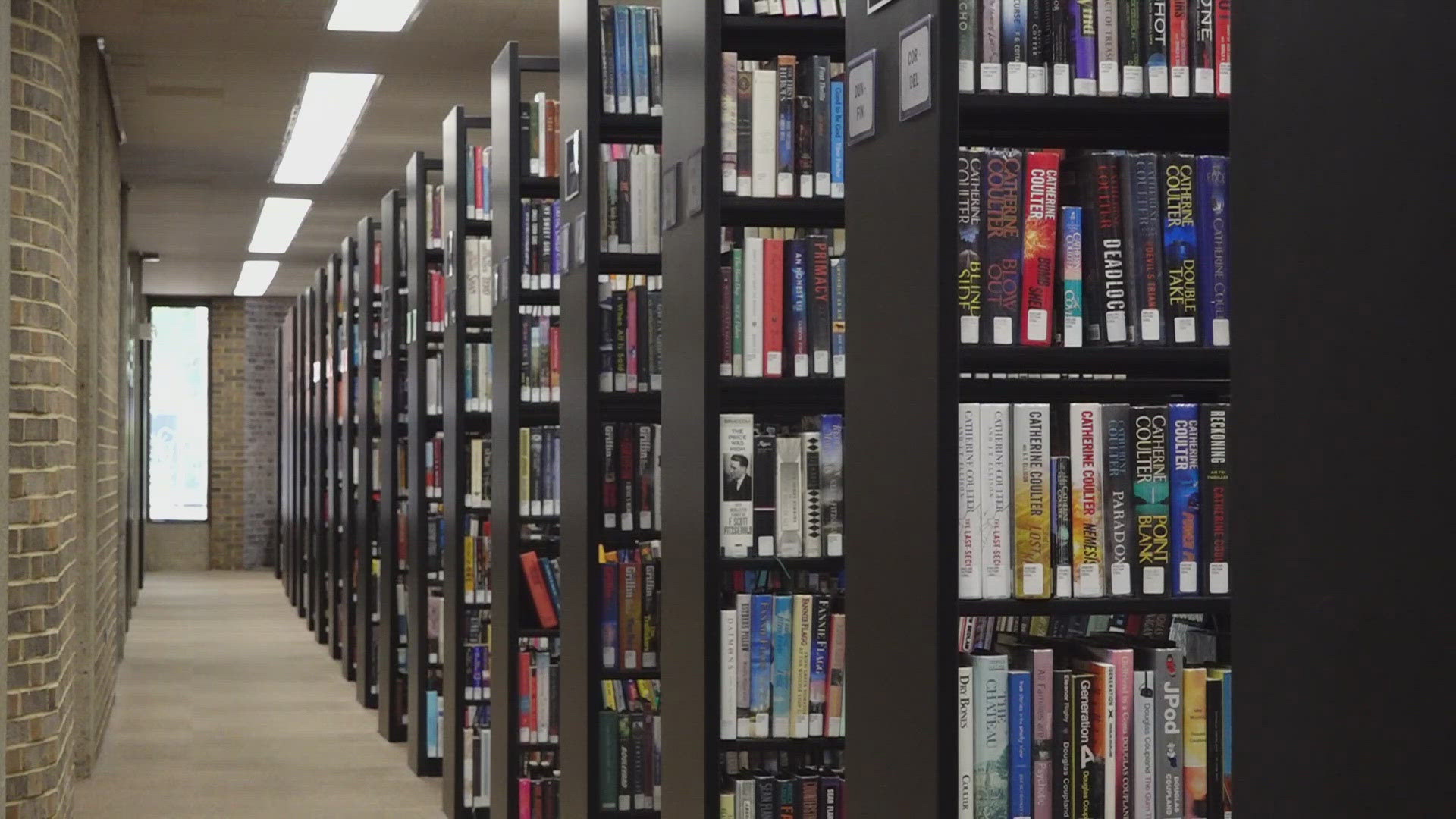KNOX COUNTY, Tenn. — A new Tennessee law that specifically bans books with sexually explicit imagery went into effect on Monday. It changes the state's existing restrictions on materials allowed in schools, explicitly barring materials that contain nudity sexual excitement, sexual conduct or excess violence. It also said materials could not appeal to the "prurient interest," a term that faced intense debate in earlier legislative sessions.
In effect, the law could result in more books being banned from school libraries. The original law passed in 2022, did not include a definition of what is considered "suitable for the age and maturity levels" of students.
The new law says books on school shelves must be age-appropriate for children. Lawmakers determined that "nudity, or descriptions or depictions of sexual excitement, sexual conduct, excess violence, or sadomasochistic abuse" are not age-appropriate content for students between kindergarten and 12th grade.
Susan Horn, a Knox County Board of Education member, introduced a policy to the board in June that she said would have banned books with sexually graphic images. That policy failed by a split vote. One member was absent during the vote.
The new Tennessee law is meant to address the same issues.
"It's not only visual in the state law," Horn said. "It’s really any book that alludes to a sexual act or nudity or anything of that sort. It’s gonna be a challenging process for our school district to be sure that we’re in compliance."
Knox County Schools will have to make sure the thousands of books on their shelves comply with state law, Horn said.
Katherine Bike, another board of education member who voted against Horn's proposed policy, pushed back against Horn and the conservative group Moms for Liberty in a board meeting on June 6. Several people wore the group's logo to the meeting.
The Southern Poverty Law Center recognizes Moms for Liberty as a far-right, antigovernment organization "that engages in anti-student inclusion activities and self-identifies as part of the modern parental rights movement."
“We have a system in place," Bike said. "We have gone over and over the systems in place. I understand that we have a new law and I'm always here to abide by laws. I also do take offense to the idea that I would be wanting to harm children.”
Several members of Moms for Liberty spoke at the June 6 meeting, which can be viewed here.
"I don't trust district leadership or the library science department," said Sheri Super, Chair of Knox County Moms for Liberty. "They are clearly aware that these materials are available in our school libraries and have done nothing about it."
Super went on to read an excerpt from "Queer" by Kathy Belge and Marke Bieschke that depicted anal sex. This book is available in a Knox County school, she said.
Book bans have sparked a nationwide debate. Many opposed to the bans argue that classics like "To Kill A Mockingbird" and "The Lord of the Flies" could be taken off shelves under such bans. The new Tennessee law explicitly bans books with sexual imagery and other sexual content, so if a classic novel contains that content, it could be taken off of local bookshelves.
Although she's in favor of the law, Horn said she doesn't want that to happen.
"It's difficult to balance classic novels with something that may be new that's inappropriate," she said. "There are always unintended consequences with this type of law. I would hope there's a way to not exclude classics that may fall into a technical definition."
Jennifer Owen, another board member, said she doesn't expect much to change because of the law. Knox County Schools already have review systems in place for books, she said.
Parents are the first educators, Horn said. They need to be in charge of what their children are exposed to, she also said.
"I do think that parents need to be diligent about what students are bringing home and what they're reading," Horn said. "And I hope that parents will continue to have that kind of dialogue and interface with their students to make sure what they're reading is appropriate."
If parents think a book isn't age-appropriate for their child, they should call their school's principal or librarian, Horn said. Even if there are concerns about the book outside of sexual imagery, parents should be vocal, but respectful, she said.

